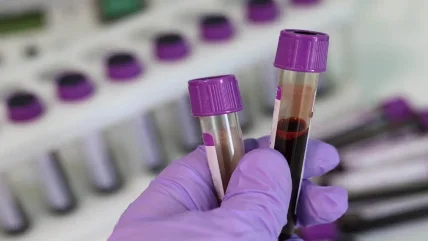
C2N Diagnostics said that its PrecivityAD2 blood test has significantly enhanced the diagnostic accuracy of Alzheimer’s disease (AD) in a clinical study, in both primary care settings and specialised memory care.
The findings of the study were published in the Journal of the American Medical Association (JAMA).
The study, involving over 1,200 patients, demonstrated the test’s ability to achieve over 90% accuracy compared to cerebrospinal fluid (CSF) analysis or amyloid PET scans.
Its goal was to prospectively assess the effectiveness of a clinically available blood test for Alzheimer’s disease in both primary and secondary care settings, employing predefined biomarker cutoff values.
The study involved participants who were undergoing clinical evaluation for cognitive symptoms, with examinations conducted between February 2020 and January 2024 in Sweden.
According to C2N Diagnostics, the PrecivityAD2 blood test uses high-resolution mass spectrometry to measure specific blood proteins indicating amyloid plaques, a key marker of Alzheimer’s disease.
The PrecivityAD2 test relies on a validated algorithm combining plasma Aβ42/40 and p-tau217/np-tau217 (%p-tau217) ratios, providing clear positive or negative results regarding brain amyloid pathology.
The study compared clinical assessments to blood biomarker testing, revealing a positive predictive value of 97-99% for patients with cognitive impairment, indicating a strong correlation between positive test results and actual Alzheimer’s disease pathology.
C2N Diagnostics CEO and co-founder Joel Braunstein said: “This landmark research shows how our consistent, robust, and high-performing blood tests are providing a clear picture of Alzheimer’s disease pathology.
“The test performed the same in primary care and specialty memory care, and it was highly accurate regardless of patients’ clinical presentation and medical comorbidities.
“The outcomes should eliminate the need for invasive lumbar punctures and costly amyloid PET scans for most patients while also helping to reduce the time to an accurate diagnosis on a global scale.”
The speciality diagnostics company also said that the findings of the study align with the Global CEO Initiative on Alzheimer’s disease’s recommended blood biomarker performance criteria. The Global CEO Initiative is a worldwide effort aimed at facilitating the adoption of Alzheimer disease’s blood-based biomarker tests into clinical practice, ensuring a more straightforward, timely, and accurate diagnostic process for patients.
Additionally, C2N Diagnostics stated that it has recently partnered with global laboratories, including Grupo Fleury in Brazil, Healius in Australia, Mediford in Japan, and Mayo Clinic Laboratories, to expand access to the Precivity portfolio. The tests are intended for patients aged 55 and older showing signs of mild cognitive impairment or dementia.






